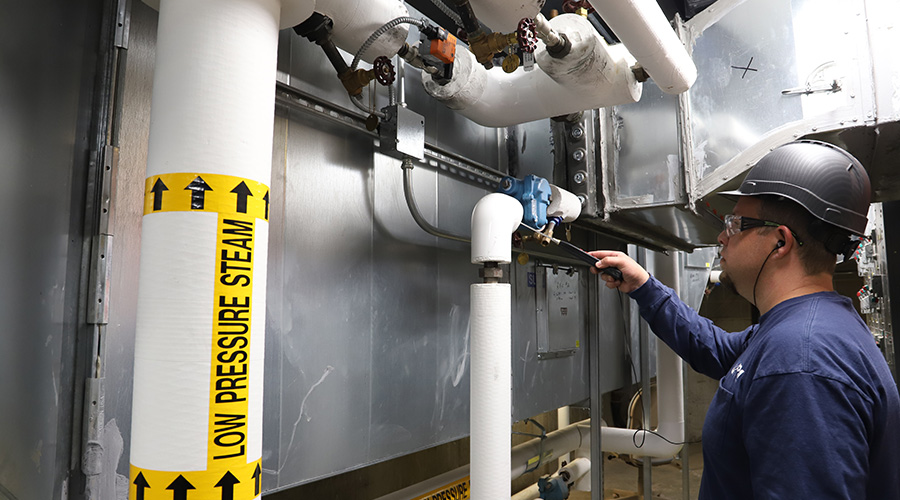NSF International has published a new American National Standard for drinking water filters designed to reduce potentially harmful microorganisms from municipal drinking water systems during the critical period between a water-supply contamination and a boil-water advisory.
NSF/ANSI 244: Supplemental Microbiological Water Treatment Systems – Filtrationestablishes minimum requirements for mechanical water filtration devices that reduce bacteria, viruses and protozoan cysts, including point-of-entry, or “whole house” filters, and point-of-use filters, such as plumbed-in units under the kitchen sink, faucet-attached units and refrigerator filters.
Supplemental water filters can play an important role in protecting public health, especially for people with sensitive immune systems. Filtration devices certified to the new standard from NSF International and the American National Standards Institute (ANSI) can reduce the risks associated with disease-causing microbes in the hours or days before a boil-water advisory can be issued.
Although the United States has one of the world’s safest drinking water supplies, threats to drinking water are increasing, according to the U.S. Environmental Protection Agency (EPA). Each year there are thousands of boil-water advisories either as a precaution due to an accidental water main beak or low-pressure event, or because of a confirmed microbial contamination.
Devices covered under the new standard are intended only for protection against accidental microbiological contamination of otherwise safe drinking water. In the case of a contamination event or boil-water advisory, consumers should follow their municipal water authority’s instructions and maintain their filtration device per the manufacturer’s instructions once the event is over.
“NSF/ANSI 244 establishes the minimum requirements and performance characteristics for products that claim to reduce the type of potentially harmful microorganisms that can get into the water supply if there is some kind of unexpected microbiological contamination event,” said Jessica Evans, Director of Standards Development at NSF International. “Consumers, especially those with compromised immune systems, can be confident that products certified to the standard will provide protection if there is some kind of event with the public water system.”
NSF/ANSI 244 was developed according to ANSI processes by a committee of 33 stakeholders representing consumers, the water industry, and state and federal health and environmental agencies in the U.S. and Canada. The ANSI standards development process is designed to ensure openness, balance, consensus and due process for all stakeholders. NSF International’s standards development group facilitated the standards development process.
As the final step in the standards development process, NSF/ANSI 244 was ratified by NSF’s Council of Public Health Consultants, which includes representatives from the EPA, the Centers for Disease Control and Prevention (CDC) and the Food and Drug Administration (FDA).
 Biofilm 'Life Raft' Changes C. Auris Risk
Biofilm 'Life Raft' Changes C. Auris Risk How Healthcare Restrooms Are Rethinking Water Efficiency
How Healthcare Restrooms Are Rethinking Water Efficiency Northwell Health Finds Energy Savings in Steam Systems
Northwell Health Finds Energy Savings in Steam Systems The Difference Between Cleaning, Sanitizing and Disinfecting
The Difference Between Cleaning, Sanitizing and Disinfecting Jupiter Medical Center Falls Victim to Third-Party Data Breach
Jupiter Medical Center Falls Victim to Third-Party Data Breach